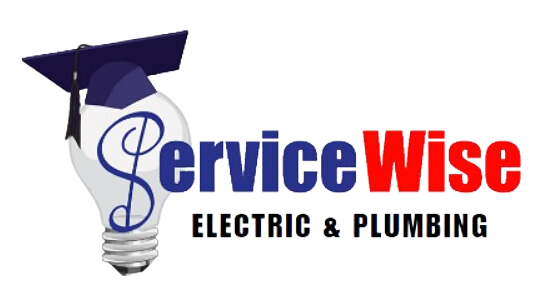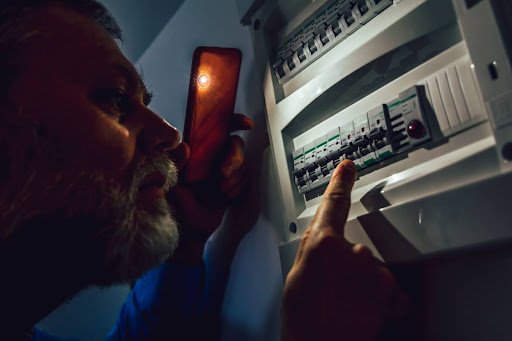Sudden power outages can come as a surprise. But with a little preparation, you don’t have to be caught off guard. Living in Georgia, we’re no strangers to sudden storms and unexpected outages. Having a solid plan in place can make all the difference in your comfort and safety.
Are you ready to get started? Let’s discuss how to prepare for a power outage.
What Causes Power Outages?
Power outages can be caused by a variety of factors, including severe weather, equipment failure, and accidents involving power lines. In Georgia, storms can knock out power for hours or even days. Being aware of the potential causes can help you stay prepared.
The Importance of Having a Power Outage Plan
Creating a power outage plan is important for every household. This plan should include steps to take before, during, and after an outage to minimize disruption and keep everyone safe. From stocking up on essentials to knowing how to communicate during an outage, a well-thought-out plan can help you navigate these situations with ease.
How to Prepare for a Power Outage
When you lose power out of the blue, it’s easy to panic. Our lives largely depend on electrical power, so sudden outages can leave us feeling helpless. That’s why it’s imperative to know how to prepare for a power outage. By creating a power outage plan, you can be more prepared and avoid being caught off guard.
Stock Up on Essentials
One of the first steps in how to prepare for a power outage is to make sure you have all the necessary supplies. Here are some items you should have on hand:
- Batteries and Flashlights: Keep several battery-powered flashlights and extra batteries in easily accessible locations.
- Non-Perishable Food and Water: Stock up on canned goods, dry food, and bottled water. Aim for at least a three-day supply.
- Battery-Powered Radio: A radio can help you stay informed about the situation and any updates from local officials.
- First Aid Kit: This should include basic medical supplies to treat minor injuries.
- Warm Blankets and Clothing: Keep extra blankets and warm clothing available to prevent heat loss in case the outage occurs during cold weather.
- Battery Backup for Electronics: A battery backup can keep your phone and other essential devices charged.
Preparing Your Home
There are several steps you can take around the house to get ready for an outage:
- Install a Whole-House Surge Protector: This can protect your appliances and electronics from electrical shock caused by power surges.
- Unplug Appliances: Unplugging appliances can help avoid damage when power returns.
- Check Your Generator: If you have a generator, make sure it’s in good working order and you have enough fuel. Generators can keep your refrigerator, medical equipment, and other necessities running during an outage.
Safety Measures for Medical Needs
If anyone in your household relies on power-dependent medical devices, it’s vital to have a backup plan. Here are some tips:
- Backup Power: As we mentioned, it’s a good idea to invest in a battery backup or generator to keep medical equipment running.
- Contact Medical Providers: Inform your healthcare provider about your plan and ask for any additional advice.
- Keep Refrigerated Medicines Cold: Use a cooler with ice packs to keep medicines at the required temperature during an outage.
Power Outage Safety Tips
When the power goes out, it’s important to follow these power outage safety tips:
- Avoid Carbon Monoxide Poisoning: Never use generators, charcoal grills, or camp stoves inside the house. Always place them outside, away from windows and doors.
- Use Battery-Powered Lights: Instead of candles, which can pose a fire hazard, use battery-powered lights.
- Stay Warm: If it’s chilly outside, close off unused rooms to keep the heat in one room, and dress in layers to stay warm.
- Keep Food Cold: A full freezer can keep food frozen for about 48 hours, and a fridge will keep food cold for about four hours if the door remains closed.
- Check on Neighbors: Remember to check up on your older neighbors and those who have medical needs that might require power-dependent medical devices.
Protect Your Electronics
Power surges can damage your electronics when the power returns. Here’s how to protect them:
- Unplug Electronics: Unplug your TV, computer, and other sensitive electronics to avoid damage.
- Use Surge Protectors: If you haven’t already, consider using surge protectors for valuable electronics.
What to Do After the Power Outage
Once power is restored, there are a few steps to take:
- Check Your Appliances: Make sure your appliances are working correctly. If any have been damaged, call a professional for help.
- Restock Supplies: Replace any used supplies, such as batteries and non-perishable foods, to prepare for the next outage.
- Assess Damage: Look for any damage to your home’s electrical system and have it repaired if needed.
Contact the Plumbers at ServiceWise Electric!
Making preparations for a power outage doesn’t have to be stressful. By creating a power outage plan and following these tips, your family can remain safe and comfortable no matter what happens. For professional electrical services, including whole-house surge protector installation, get in touch with ServiceWise Electric.
We also offer comprehensive generator services to help you stay powered up, no matter what. From installation to preventative maintenance, our experts are here to help you prepare for any power emergency.
Our reliable electricians near Canton, GA, are ready to help you stay prepared and protect your home from unexpected power outages. Schedule a service today!


